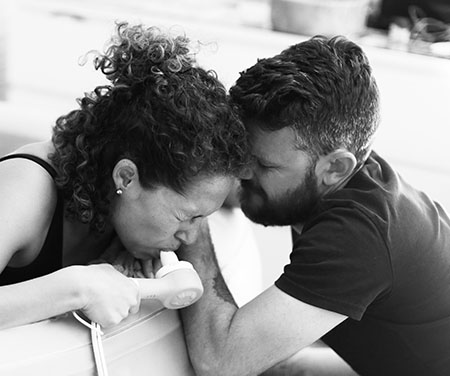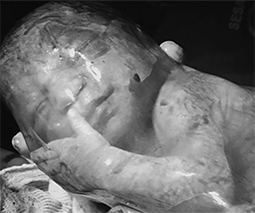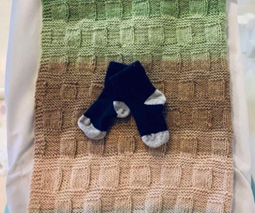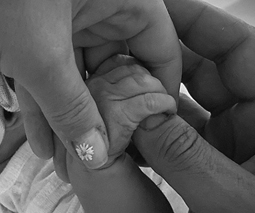Is labour pain all in the mind?

Dr Laura Whitburn, a physiotherapist and lecturer at Latrobe University, has recently completed a study on the different ways women perceive labour pain, and she hopes the research will help to improve women’s labour and birth experiences.
How do we perceive pain?
Laura says pain doesn’t actually come from the body. In fact, messages are perceived by our senses and sent to your brain.
“The brain then integrates all this information and tries to work out whether these messages are a threat and whether there’s something that person should know about,” says Laura. “That’s where the pain actually emerges.”
However, labour is not a typical sort of pain like the type caused by an injury or sickness. Pain experienced during normal labour – when all is progressing well – is not the result of something going wrong, rather something going very right.
“That intensity and that sensation is actually telling the person that the body is working really hard, and that’s a positive thing because there’s a positive outcome at the end,” says Laura.
Which is, of course, a baby!
Listen to Laura Whitburn on Feed Play Love:
What the study revealed
The study involved interviewing various women at Melbourne’s Mercy Hospital for Women and Sunshine Hospital, asking them to describe their birth experience. Laura found all the women described labour as being intense, but how they reacted to pain varied.
“The women differed in terms of what that pain meant to them and whether they were accepting that pain was a sign that their body was just working hard or whether they weren’t able to make that connection,” says Laura.
“And in those instances, the pain tended to be more threatening and more difficult to embrace, and those were the women who tended to have more negative experiences and call on more medical interventions for pain relief.”
Getting into the zone
When you go into labour, there is little time to think; however, this isn’t necessarily a bad thing.
“What we know from our research was that women who can get into this very focused zone of almost nothingness are better able to accept the pain and work with it, whereas other women who aren’t able to get into this focused state are not able to work with the pain as well,” says Laura.
That said, there are lots of distractions in hospital such as monitors, clocks or the unfamiliarity of the setting.
“There could also be distractions from the people around her, for example, being asked questions or just the presence of strangers who are carers, and also distractions from thoughts in her own mind,” says Laura. “Ideally, switching off the thinking mind is the perfect scenario and is what we want to encourage.”
Staying focused
When they analysed the stories from the women they interviewed, Laura says they found that focus played a huge role in coping with the pain.
“We found this common theme of when they were focused, they were coping well and when they were distracted, they were not coping well,” she says.
Laura also found that women’s surroundings were a contributing factor.
“Both the physical surroundings and the people in their surroundings played a big role in whether or not they were able to stay in that focused place or not,” she says.
“In particular, having a support person or a carer – it might have been a doula, it might have been a midwife – who that woman knew and trusted could play a real pivotal role in protecting her space and protecting her focus so that she wasn’t paying attention to what was going on around her.”
How can I prepare for labour?
Laura believes there are two main things a woman can do to prepare for positive labour and birth.
“Firstly, take time to understand what’s going to happen in her body to birth her baby,” she says. “This will play a big role in helping her trust her body and to work with those sensations that she will feel.”
Secondly, a woman should think about who she will have with her during the process.
“Either a doula as a support person, or a midwife, who the mother can get to know throughout her pregnancy; someone she knows will be there during her labour and births to care for her,” says Laura.
Of course, childbirth does not always go to plan, and Laura is firm in saying that her research only refers to labour that is progressing normally.
“There will be some instances when regardless of a woman’s mindset or her plans, medical intervention is absolutely necessary to keep to keep her and her baby safe.”
 Need some support to be the best parent you can be? Our Parent School parent coaching experts can help. Click to find out more or book a one-on-one session.
Need some support to be the best parent you can be? Our Parent School parent coaching experts can help. Click to find out more or book a one-on-one session.









